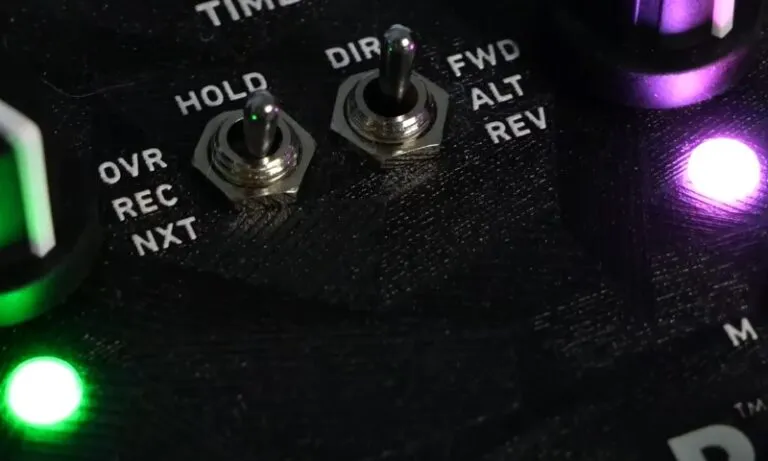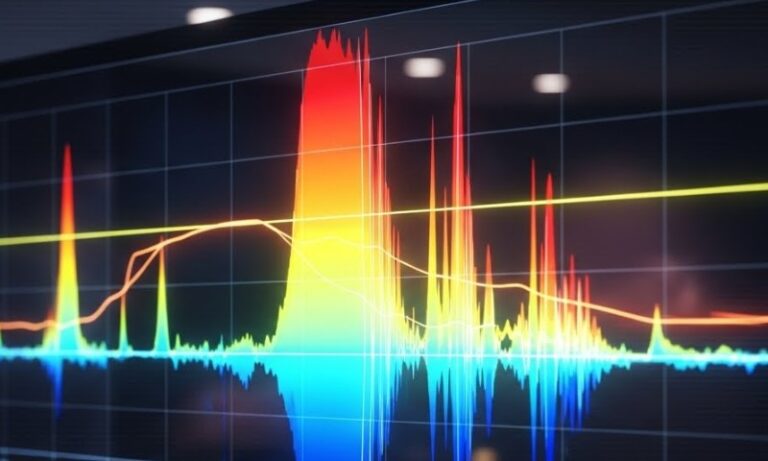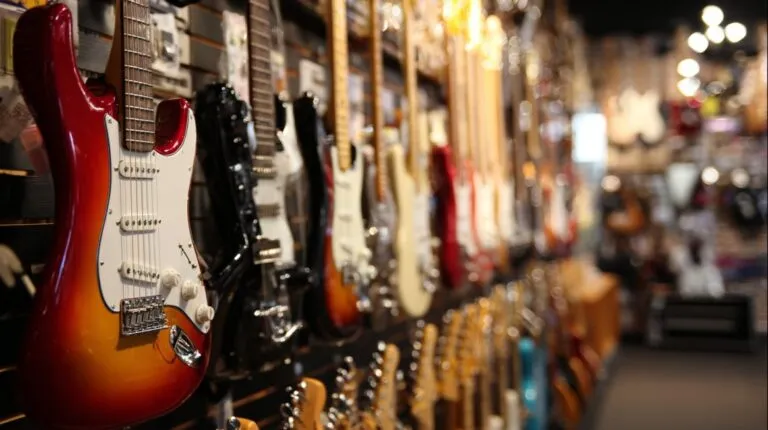As someone who’s played on everything from a battered 5-watt practice amp in a dorm room to a 100-watt tube stack at a festival stage, I can tell you firsthand, that mini amps have earned their place in today’s music scene.
But are they worth it? Or are they just convenient toys with limited purpose?
Let me give you the straight answer up front: yes, mini amps are worth it — depending on what you need.
They’re not a replacement for a full-size rig in every situation, but they’re not meant to be.
Mini amps are practical, affordable, surprisingly capable, and in some contexts, even preferable to their big brothers.
Table of Contents
ToggleAre They Worth It? Short Answer: For Most Players — Yes.

If you’re a bedroom player, a weekend warrior, a hobbyist, or even a pro looking for a portable solution, a mini amp can be a practical and even inspiring tool. They:
- Take up less space in the home
- Don’t need expensive, heavy gear to get a good tone
- They are much more affordable
- Can still pack some serious punch for their size
But they’re not magic boxes. For those seeking pure analog warmth, speaker breakup, or gig-level volume, mini amps may feel like a compromise.
Real-World Pros and Cons

Why Mini Amps Make Sense
| Advantage | What It Means in Real Life |
| Portability | You can toss it in a backpack and hit the jam session or rehearsal without lugging 50 lbs. |
| Home-Friendly Volume | You don’t need to crank it to get a satisfying tone — perfect for late-night practice. |
| Affordability | Quality models like the Boss Katana Mini or Orange Crush 20 come in under $200. |
| Integrated Features | Many have built-in effects, headphone outs, aux inputs, and even USB connectivity. |
| Repairability | Solid-state construction means fewer fragile components than vacuum tube amps. |
| Combo Design | No need for separate heads and cabinets — all-in-one units are plug-and-play. |
What Mini Amps Still Can’t Do
| Limitation | Why It Might Matter |
| Tone Depth | Full-size tube amps have more harmonic complexity and natural breakup. |
| Volume Headroom | A 5-watt amp won’t cut through in a live band setting, especially with drums. |
| Studio Quality Clean Tones | Higher-end gear usually provides more dynamic clean tones for recording. |
| Perception (and resale) | Some gear snobs turn their noses up at anything under 50 watts, even if it sounds great. |
Mini Amps for Home and Apartment Use
If there’s one environment where mini amps truly come into their own, it’s the home. Whether you’re in a cramped apartment, a college dorm, or just sharing a house with people who don’t exactly appreciate a wall of sound shaking the windows, a big amp becomes less of a musical tool and more of a domestic hazard.
Let’s be honest: cranking a 100-watt Marshall in a small living space is about as sensible as bringing a chainsaw to a dinner party.
That’s where mini amps shine.
The beauty of a mini amp is that it lets you play comfortably at low volumes without completely sacrificing tone or feel. You can still get that satisfying crunch, creamy overdrive, or warm cleans without needing to shake the walls. Most mini amps today are designed to sound great at bedroom levels, and that’s not just marketing hype. They do.
Another huge plus is the inclusion of a headphone output on most models, meaning you can plug in and play in complete silence — a lifesaver for anyone who wants to keep practicing while the rest of the house is asleep.
Add to that compact size, low weight, and the ability to tuck it under your desk or on a shelf, and you’ve got the perfect home setup.
Models like the Yamaha THR10II, Blackstar Fly 3, and Boss Katana Mini have become fan favorites for this reason. They combine portability with a legit tone, offering everything from warm clean channels to screaming leads — all in a box you can carry with one hand. These amps don’t just practically make sense — they also make playing at home feel effortless and inspiring.
Recording with Them
@valentinemorell even more vibes with @Positive Grid and the Spark MINI ✨ #sparkmini #guitaramp #positivegrid #fyp #guitarloop #donnermusic #donnerartist #donnerdst152 #donnerelectricguitar #coffeemusic ♬ son original – Mars
It might surprise some to learn that recording with a mini amp isn’t just doable — it’s often preferred, especially in home studios. While full-size stacks might look great on stage or in music videos, when it comes to laying down tracks in a controlled environment, smaller is often better.
Many modern mini amps come equipped with USB or line-out connectivity, making them ideal for direct recording into a DAW. Some even feature built-in cabinet simulation, which means you get the sound of a properly mic’d-up speaker without ever needing to set up a microphone or deal with room acoustics.
That’s not just convenient, it’s a game changer for bedroom producers.
And let’s not forget about onboard effects. Reverb, delay, chorus, amp modeling — it’s all built-in, and with surprising quality. This gives you more creative freedom and less reliance on post-processing or pedals.
Here’s a little insider tip: a well-mic’d 5-watt amp in a treated room can sound way bigger and more alive than a 100-watt half stack blasting in a garage. It’s not about volume — it’s about control, tone, and context.
So if you’re working on demos, recording scratch tracks, or even putting together serious projects from your bedroom, a mini amp might just become your secret weapon.
With Pedals — Can They Play Nice?
One of the big questions that comes up with mini amps is: “How do they handle pedals?” And the answer is — it depends, but generally, they handle them pretty well.
Most mini amps today, particularly solid-state models, are more than capable of taking on standard pedalboard effects like overdrive, delay, reverb, and modulation. Their clean channels are often voiced with pedal use in mind, and while you won’t get the same warmth and dynamics as a tube amp pushing air through a 12-inch speaker, the results can still be impressive, especially in home settings.
What’s more, many mini amps already come with digital effects built in, eliminating the need for a full pedalboard. That’s a big bonus if you’re trying to keep your setup simple, or if you just want to jam without messing around with cables and power supplies.
However, not all mini amps are created equal. Some don’t respond well to high-gain distortion pedals and can sound fizzy or compressed when pushed too hard.
On the flip side, digital-based amps like the Positive Grid Spark thrive on software-based pedal integration, letting you shape your tone via app with incredible flexibility.
If you’re a pedal junkie, it’s worth testing how your mini amp interacts with your setup — but overall, most modern models are surprisingly versatile and can hold their own in the tone chain.
Are Mini Amps a Good Choice for Beginners?
This one’s easy: yes — and in most cases, they’re the best choice.
A lot of beginners make the mistake of thinking they need a “real” amp, something big, expensive, and loud. But the reality is, when you’re just starting, you don’t need 50 watts of tube-driven mayhem.
What you need is an amp that makes you want to play every day, one that sounds good at low volumes, is easy to use, and doesn’t empty your wallet before you even know if you’ll stick with it.
Mini amps hit all those points.
They’re affordable, with many great options available for well under $150. They’re intuitive, meaning you won’t get lost in pages of menus or overly complex controls. And most importantly, they live in a world where beginners play in bedrooms, basements, living rooms, and occasionally, the front porch.
What matters most in those early months isn’t the size of your rig — it’s whether the gear in front of you makes you excited to pick up the guitar. And mini amps, more often than not, deliver exactly that.
Worth Checking Out
| Amp Model | Best For | Notable Features | Approx. Price | Where to Buy |
| Boss Katana Mini | All-around practice | 7 watts, 3 amp modes, battery powered, headphone out | $99.99 | Amazon |
| Yamaha THR10II | Home recording & practice | Stereo effects, USB out, Bluetooth, studio tone | $329.99 | Yamaha |
| Orange Crush 20RT | Small gigs & classic rock tones | Built-in reverb, tuner, great clean & crunch channel | $219.00 | Amazon |
| Positive Grid Spark 40 | Modeling & app integration | Smart jam, virtual pedals, USB recording | $249.00 | Positive Grid |
| Blackstar Fly 3 | Ultra-portable & busking | Battery-powered, tape delay effect, tiny footprint | $74.99 | Blackstar |
Bottom Line

In the end, mini amps aren’t just convenient — they’re incredibly capable tools that serve real musical purposes. Whether you’re practicing at home, laying down tracks, or just looking to keep your rig simple, there’s a mini amp that fits the bill.
What they offer instead is accessibility, creativity, and practicality — and that makes them worth every penny. If it inspires you to play more, write more, and enjoy the guitar more, then it’s doing its job.
And honestly? That’s what matters most.
Related Posts:
- Live vs. Pre-Recorded Podcasting - Pros, Cons, and…
- Spectral Music Explained: From Ligeti to Laptop Noise
- Alana Springsteen's Net Worth in 2025 - Earnings,…
- Drake Net Worth 2025 - Earnings, Career, and…
- Rihanna Net Worth 2025: Yearly Earnings, Assets, And…
- How Much is Walter Williams of The O'Jays Worth in 2025?












